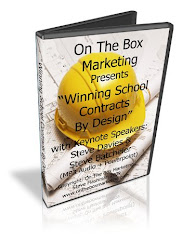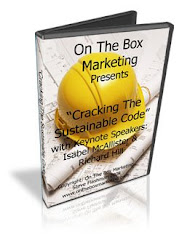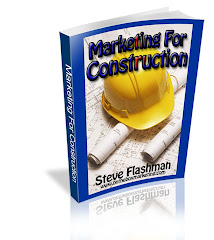So you get in front of the decision maker! You managed to sell yourself and your company, get past the ‘gatekeeper’ and now you have a listening audience. The way you conduct yourself in the next few minutes will win or lose you that lucrative contract.
These days construction marketing is far more than cold calling or even business to business calling. The marketing process is much more personal. It is unlikely that a major contract will be awarded to your company without the daunting prospect of the interview or presentation.
Here are my top ten tips for construction marketing presentations:
1. Focus on your core values. If you are able to give a presentation, it should focus on a central proposition, which should be the unique perceived benefit that the prospect gains from working with your company
2. Press those “hot buttons!” During the questioning phase the marketing person will have gained an understanding as to what are the key issues that will make or break this contract. The presentation must now focus on matching the benefits of the product with the needs of the prospect. Your presentation must demonstrate that the product/service you offer, meets your prospect's needs, priorities, constraints and vision.
3. Be well structured, clear and concise. All sales presentations, whether impromptu or the result of significant preparation, must be well structured, clear and concise and professionally delivered. The quality and integrity of the presentation is always regarded as a direct indication as to the quality and integrity of the product/service your company offers.
4. Present with a human face! Be human in the way you present. Get your facts straight, but with personality! Sales presentations must always meet the expectations of the listener in terms of the level of information and relevance to the prospect's own situation, but if you want to win the contract you need to relate person to person. Business decision-makers sign contracts when they become satisfied that the decision will make them money, save them money, save them time or save them pain! They also need to be certain that the new product/service will be sustainable and reliable so the presentation must be convincing in these areas.
5. Avoid trying to convince your prospect by going on overload. While the presentation must always focus on the main perceived benefit, it is important to show that all the other incidental requirements and constraints are met - but do not over-emphasise or attempt to 'pile high' loads of incidental benefits as this simply detracts from the central proposition.
6. Be relevant. Use the language and style of the audience - e.g., technical people need technical evidence; sales and marketing people like to see flair and competitive advantage accruing for their own sales organisation; managing directors and finance directors want clear, concise benefits to costs, profits and operating efficiency; and generally the more senior the contact, the less time you will have to make your point - no-nonsense, no frills, but plenty of relevant hard facts and evidence. The presentation must include relevant evidence of success, references from similar sectors and applications, facts and figures - all backing up the central proposition.
7. Take the right people with you. If you are required to present to a large group and in great depth, then it's extremely advisable to enlist the help of one or two suitably experienced colleagues, from the appropriate fields, e.g., contract management, surveyors, estimators, client service, etc., in which case you must ensure that these people are properly briefed and prepared and the prospect notified of their attendance.
8. Keep control of the presentation. But do so in a relaxed way. If you don't know the answer to a question don't waffle - say you don't know and promise to get back with an answer later, and make sure you do. During the presentation seek feedback, confirmation and agreement as to the relevance of what you are saying, but don't be put off if people stay quiet. Depending on how confident you feel about keeping control of the presentation, invite your prospects to ask questions at any time.
9. Never criticise the competition If you take a swipe at your competition, you will undermine your credibility and integrity. You won’t need to descend into bashing others if you are confident that your own company can deliver on time and on budget and with great quality of service. Your prospect will know this!
10. Be practical and creative. If appropriate issue notes, or a copy of your presentation. Use props, samples and demonstrations if relevant and helpful and if you are using equipment such as a laptop and projector, make sure they are all working properly.
And the golden rule: Believe in your company! Whether presenting to one person or a group, relax and be friendly. Let your personality and natural enthusiasm shine through because prospects buy from people who believe in the company they represent.
Masterclass In Construction Marketing
Thursday, 25 November 2010
Subscribe to:
Post Comments (Atom)





No comments:
Post a Comment